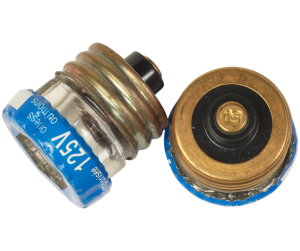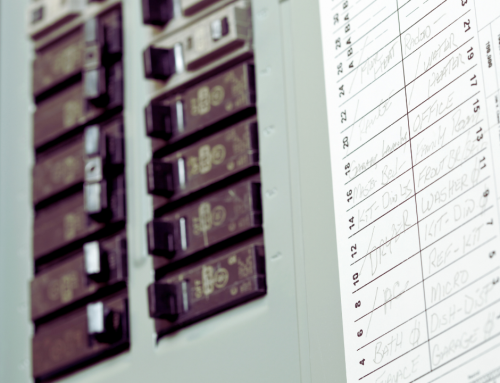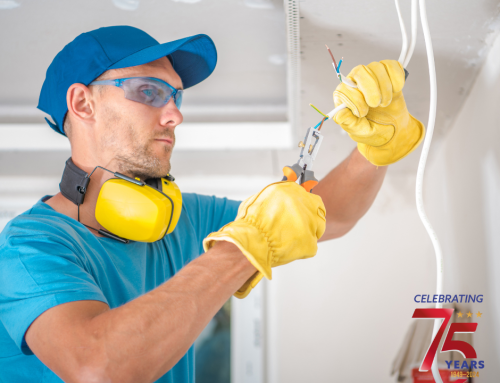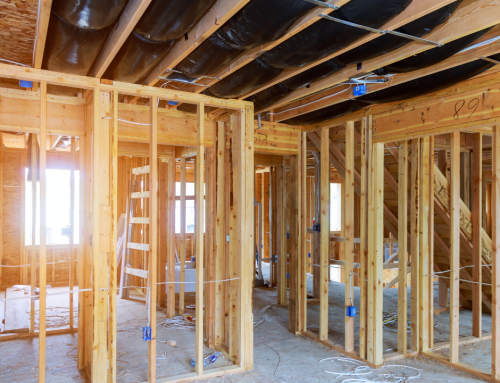
It’s an important question that many homeowners ask, often tucked away in our basements or utility rooms; the fuse panel is a critical component of our homes that we might not give much thought to. Until something goes wrong, that is. But how do we know if our fuse panel is safe? Let’s explore the nature and function of fuse panels, their potential safety concerns, and steps to ensure their ongoing safe operation.
What is a Fuse Panel and Its Purpose?
The fuse panel, often called a fuse box, is integral to your home’s electrical infrastructure. Its primary function is distributing electricity from the main power source into various subsidiary circuits within your dwelling. This unsung hero of our daily lives is equipped with a safety mechanism known as a fuse. This fuse shields each circuit from overcurrent, where more electricity flows through a circuit than it can safely handle. Should an overcurrent situation occur, the fuse steps into action, blowing itself to halt the flow of electricity. This abrupt cessation of power protects the circuit and, more broadly, your home from potential fire hazards. In essence, the fuse panel serves a dual role – distributing electrical power efficiently throughout your home while acting as a protective guard against electrical mishaps.
The Role of Fuses in Your Electrical System
Fuses function as the defence mechanism of your home’s electrical system, constantly overseeing and controlling the volume of electrical current passing through each circuit. They spring into action in the event of an overcurrent or fault, burning out or “blowing” to disrupt the flow of electricity. This intervention is more than a mere convenience – it’s a necessary safety measure. By interrupting the power supply to the affected circuit, the fuse prevents potential damage to your wiring and mitigates the risk of electrical fires. This proactive action safeguards your home, underlining the fundamental role that fuses play in maintaining the integrity and safety of your home’s electrical system. The silent, constant vigilance of these fuses helps keep our homes and families safe from the risk of electrical mishaps.
Are Old Fuse Panels Safe?
Evaluating the safety of older fuse panels is not a black-and-white issue. While they aren’t inherently dangerous, they often come with unique challenges that can present potential safety risks. For one, the normal wear and tear that accompanies aging infrastructure can compromise their performance and safety over time. Additionally, they are typically designed with fewer circuits, which can lead to overloading. This overload might trigger fuses to blow frequently, potentially posing a risk of electrical fires. Moreover, vintage fuse panels commonly use screw-in fuses, which might be mistakenly replaced with inappropriately larger fuses, thus creating a fire hazard. So, although an aged fuse panel isn’t immediately deemed unsafe, it certainly warrants extra care and vigilance to maintain its safety.
The Importance of Regular Fuse Panel Inspection
To ensure the longevity and safety of your fuse panel, it’s important to conduct regular inspections. Ideally performed by a qualified electrician, these checks can pre-emptively identify potential issues that may escalate if left unattended. Corrosion, signs of electrical faults, or incorrect fusing can all be addressed during these inspections, reinforcing the panel’s effectiveness and safe operation. While the frequency of these inspections may vary depending on the age and condition of your fuse panel, most homes would benefit from a check on an annual or biannual basis. It’s not merely about adhering to a maintenance schedule but about investing in your home’s safety. With consistent inspections, you are assured that your fuse panel continues to function optimally, acting as the reliable guardian of your home’s electrical system. Regular inspections are thus more than a safety measure – they are essential to responsible homeownership, ensuring that your fuse panel is well-maintained, effective, and, most importantly, safe.
Upgrading Your Fuse Panel: A Proactive Step Towards Safety
If signs of aging or wear have become apparent in your fuse panel, it may be prudent to contemplate an upgrade. Transitioning to a modern circuit breaker panel can significantly boost the safety and efficiency of your home’s electrical setup. This is due to its ability to support a higher electrical capacity, thereby comfortably accommodating the needs of today’s modern appliances. A noteworthy advantage is the elimination of risks associated with incorrect fuse replacement, as the concept of fuses becomes obsolete with circuit breakers. Opting to upgrade your panel is not merely an act of replacement but rather an active measure of enhancing your home’s electrical safety. This change could drastically decrease the chances of electrical mishaps, offering you peace of mind knowing that your home’s electrical system is up-to-date and designed with safety at its core.
Safety First: Key Takeaways
To wrap up, the fuse panel is pivotal in protecting and functioning your home’s electrical structure. Although older panels aren’t necessarily dangerous, they may introduce safety hazards due to natural wear, aging, and outdated configurations. Routine examinations performed by a certified electrician can ensure your fuse panel’s consistent, safe operation and help mitigate potential issues before they escalate. An electrical panel upgrade might be worth considering, as it can boost your electrical setup’s safety and efficiency. With safety being paramount, it is crucial to ensure that your fuse panel is up to the task of protecting your home from any electrical mishaps. Ultimately, the overall safety of your household’s electrical system can be significantly enhanced through regular inspections, vigilant maintenance, and timely upgrades.
Because fuse panels are no longer considered up to code, you won’t find them in newer homes. However, plenty of older homes in Eastern Ontario are running off a fuse panel. While having a fuse panel in your home isn’t breaking any laws, you may find that upgrading to a more modern system will be more convenient and offer some peace of mind. At some point in the future, you may be forced into an electrical panel upgrade by insurance companies.
If you want to make sure your system is safe or are considering upgrading your home’s wiring, reach out to ATEL Electric. We are your friends and neighbours and want to make sure our community sleeps well, secure in the thought that their home’s wiring is as safe as possible.





